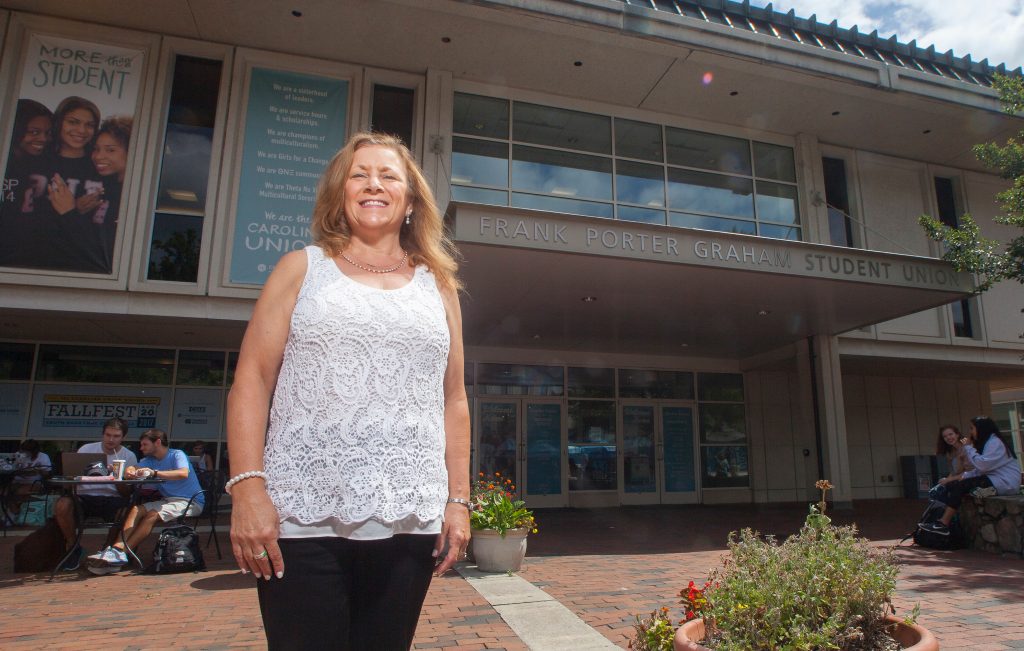
Real World Learning to Make a Real Difference
UNC Chapel Hill faculty member Debra Murray has a passion for student wellness that has been fostered over more than 25 years teaching at the University.
During that time, her Personal Health class has sought to impart her passion for wellness in its many forms—personal, social, financial—to her students. The elective course, open to juniors and seniors, strives to help students make better decisions.
“Over the years, I have evolved the class considerably,” Debra says. “But I try to connect everything to the idea of teaching students to use the wellness continuum to guide their decision making.”
In recent years, Debra has noticed financial wellness has become an increasing concern for her and her students.
“There is just so much concern in the students. They come in here and feel like they are expected to go into debt,” Debra says. “But I am here to give them the tools and training to make smart financial decisions that they will, hopefully, use the rest of their lives.”
One of Debra’s favorite strategies to engage students is bringing in community partners who are experts in their field.
Enter Creighton Blackwell, vice president of Corporate Affairs at Coastal, and a UNC Chapel Hill alum.
Debra scheduled him to come in for one session and talk to students about a range of topics related to financial wellness; When and how to establish credit, Best practices for student loans. How to budget. What money really means.
“Creighton is amazing with the students. He talks to them in language they can understand and relate to,” Debra says. “He inspires them to get excited about their finances, and not be afraid of it.”
Creighton, for his part, is getting a lot out of the partnership as well. “I had great mentors when I was growing up. And I love the opportunity to give these students the same,” he says. “You need to strive for something better. But you also need the right tools and training.”
And the students are responding to the lessons. His talks and Q&A sessions have become so popular, Debra books him for two sessions now. “As busy as he is, it’s remarkable how committed he is to making a difference on our campus and student lives,” she says.
In fact, several students have pointed out that the class is so valuable, they felt it should be required for all first-year students.
“In my evaluations that come in at the end of class, there have been many comments about how important and vital the class is,” Debra says. “They feel more equipped to make better decisions and lead healthier lives.”
And through that, the cycle of wellness continues on.

